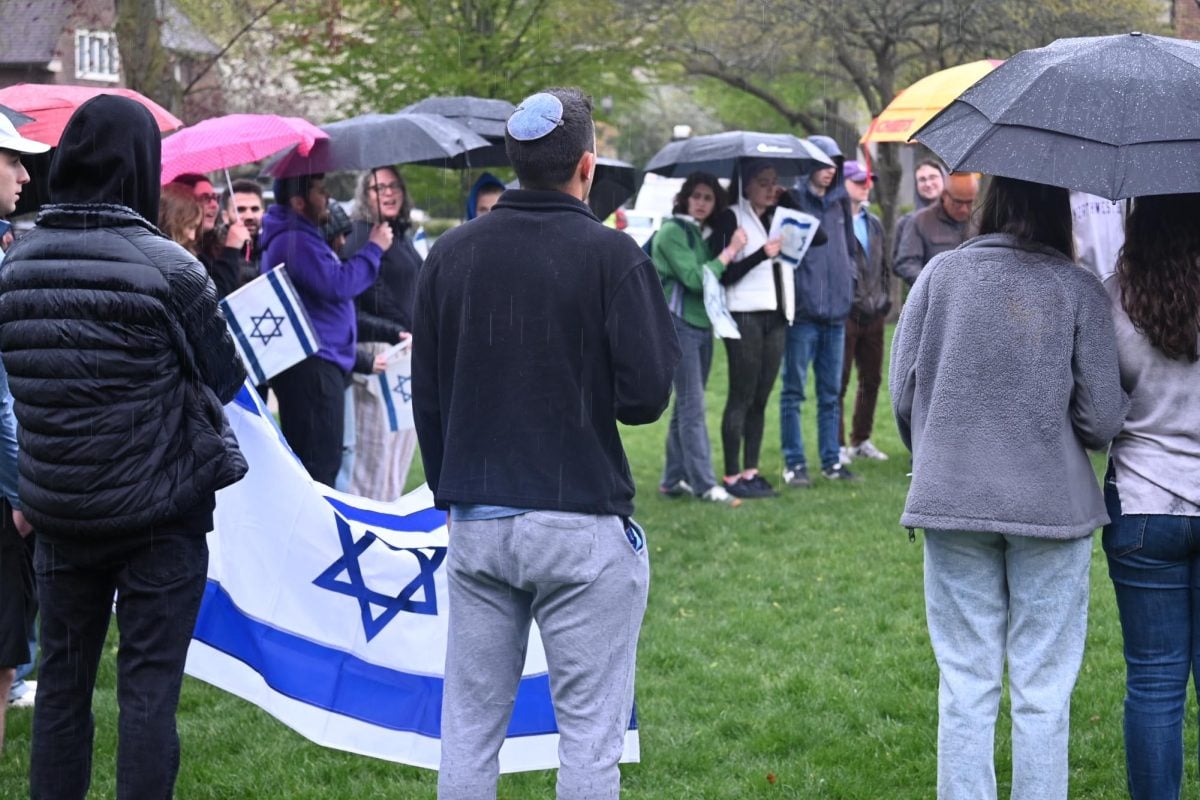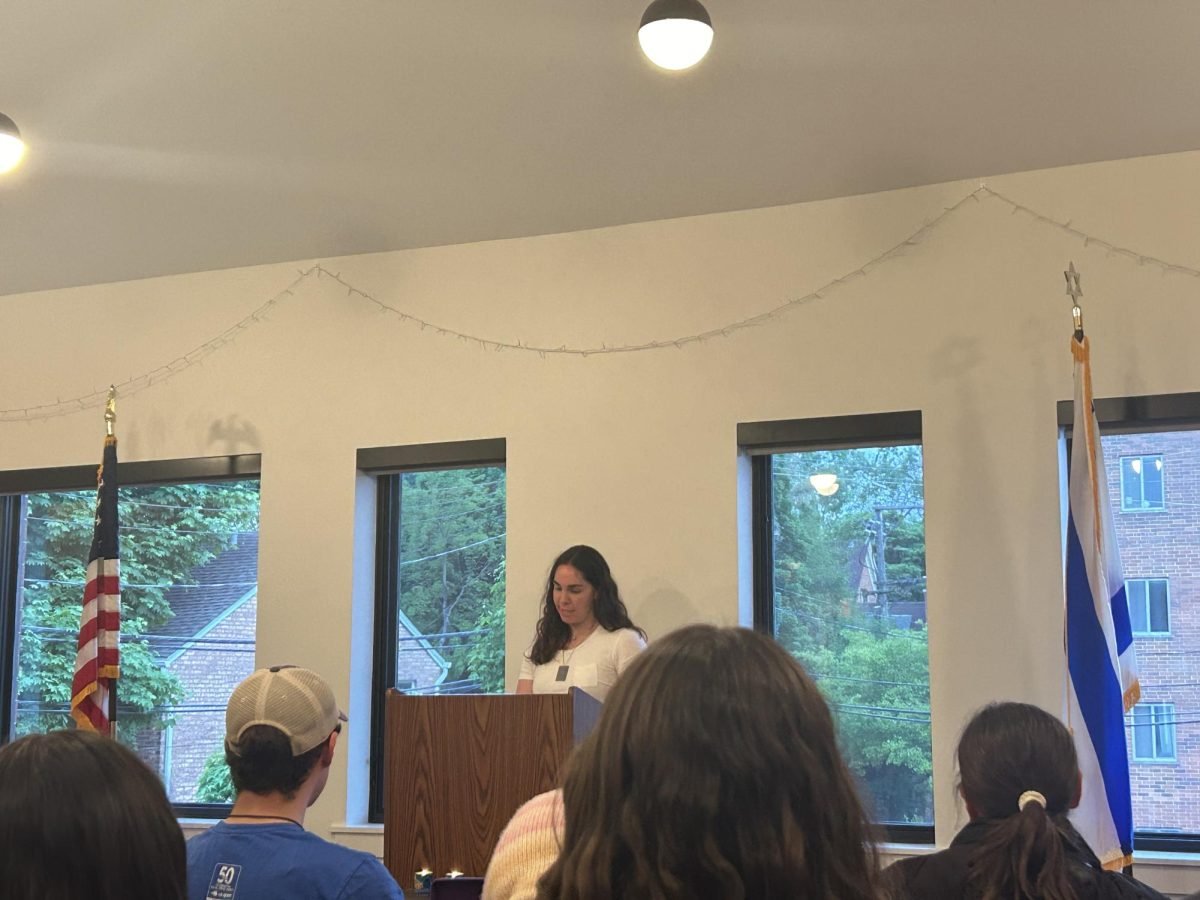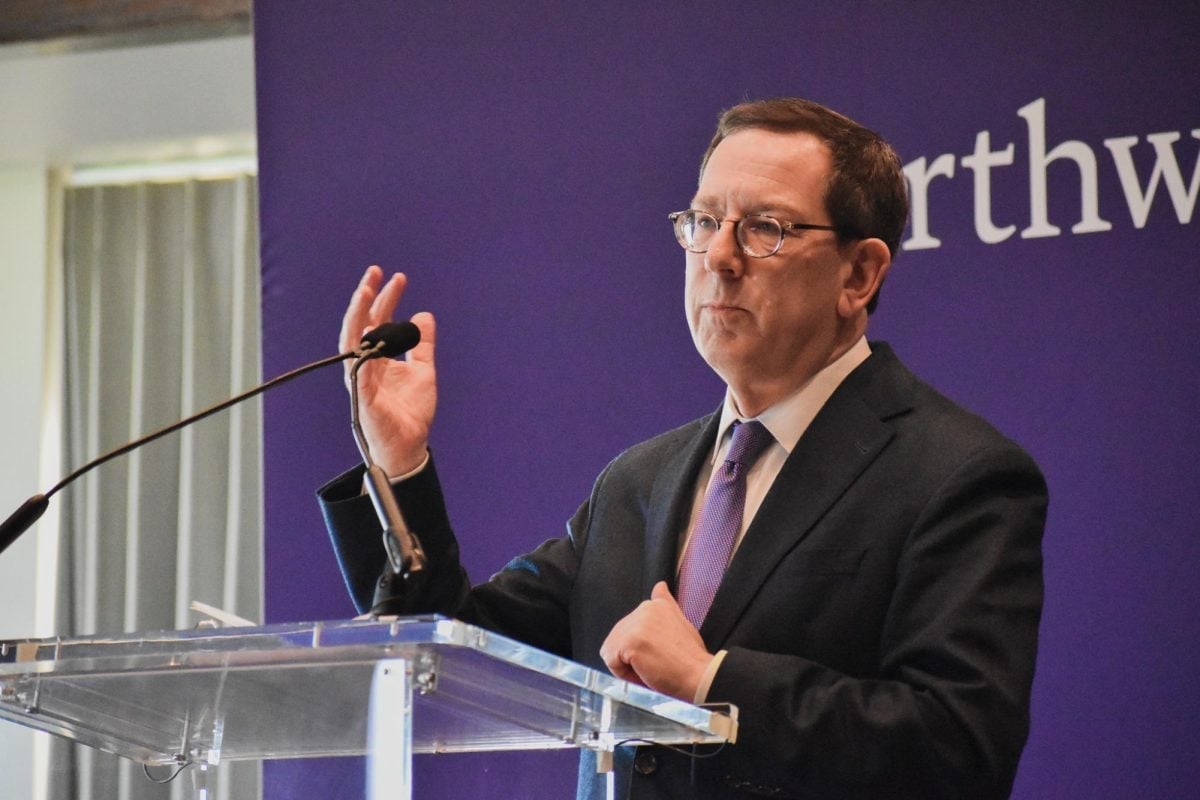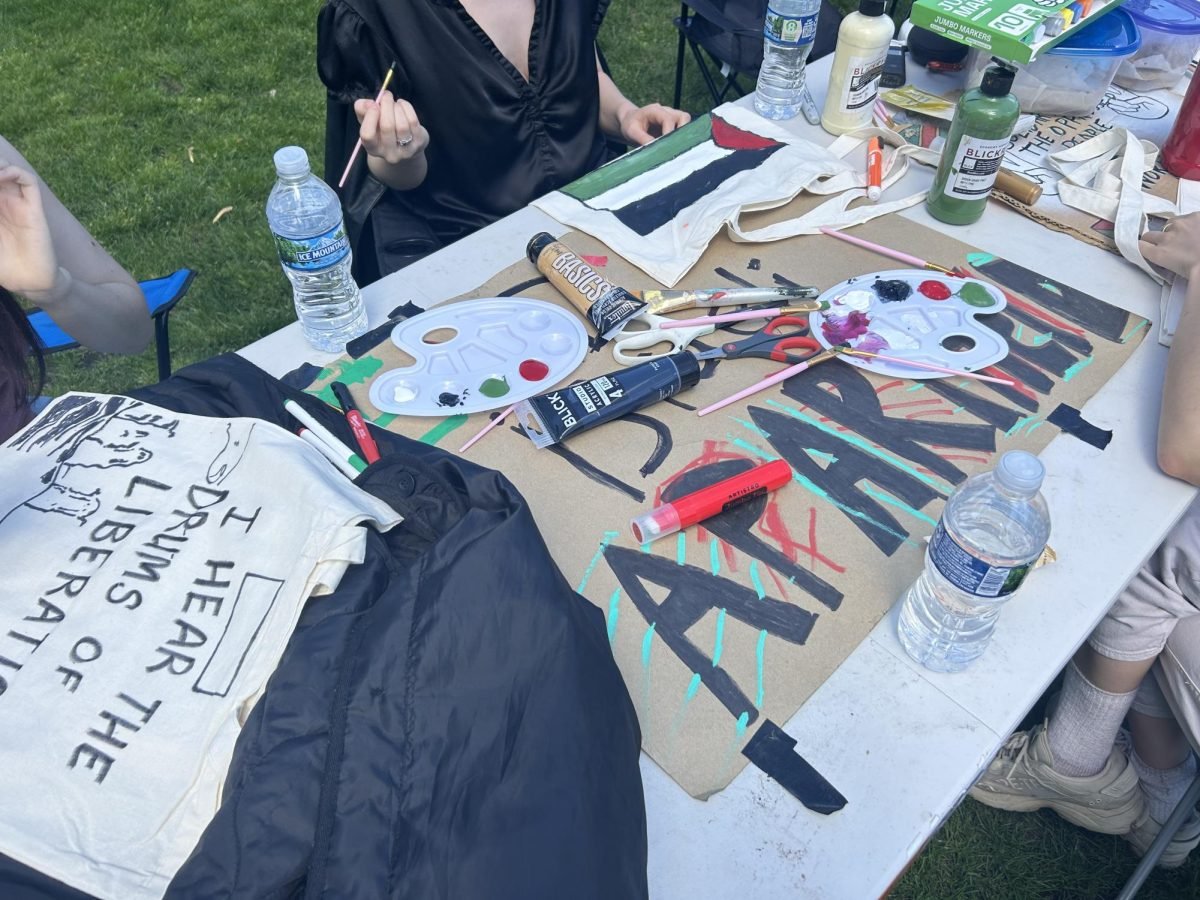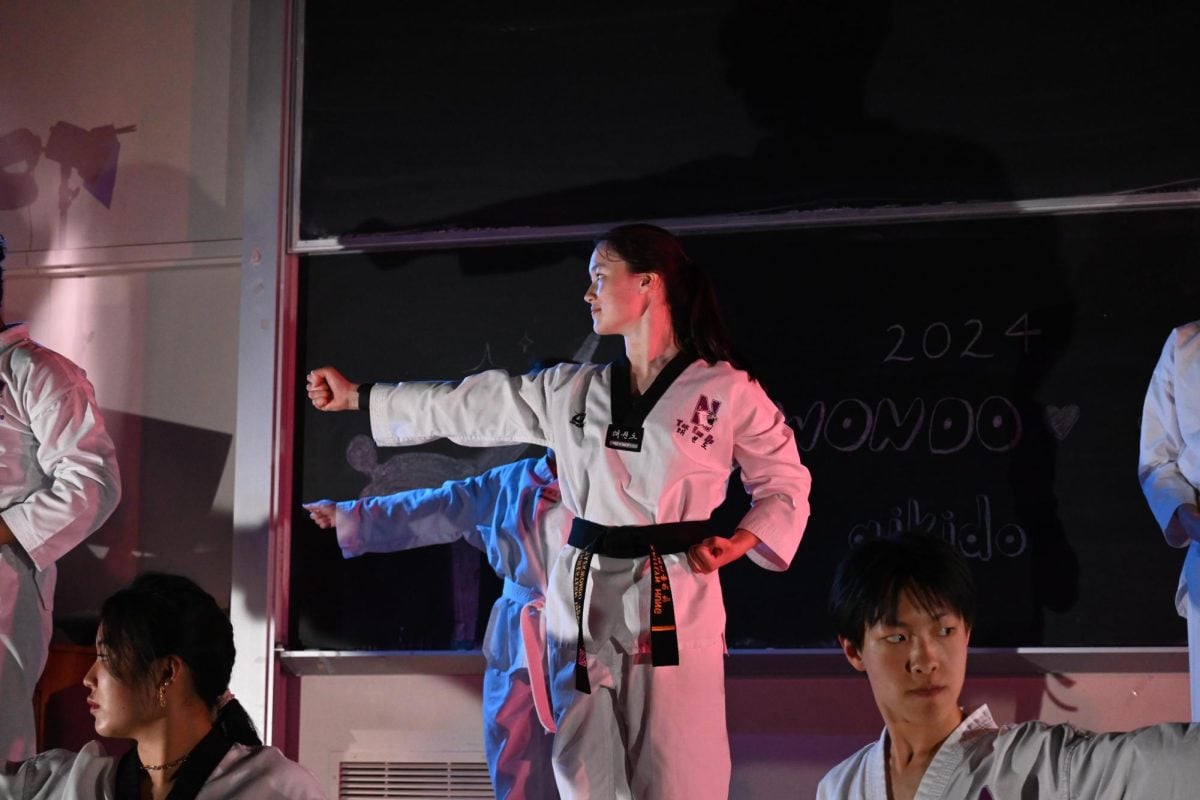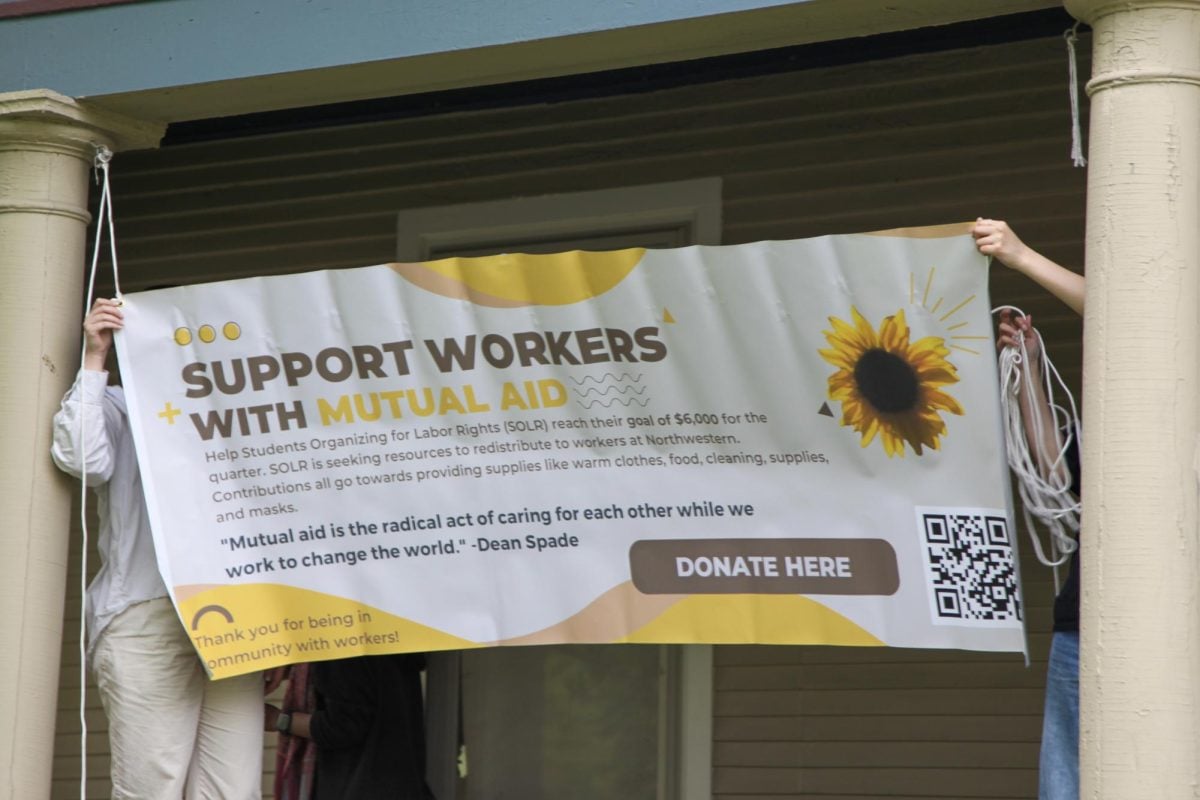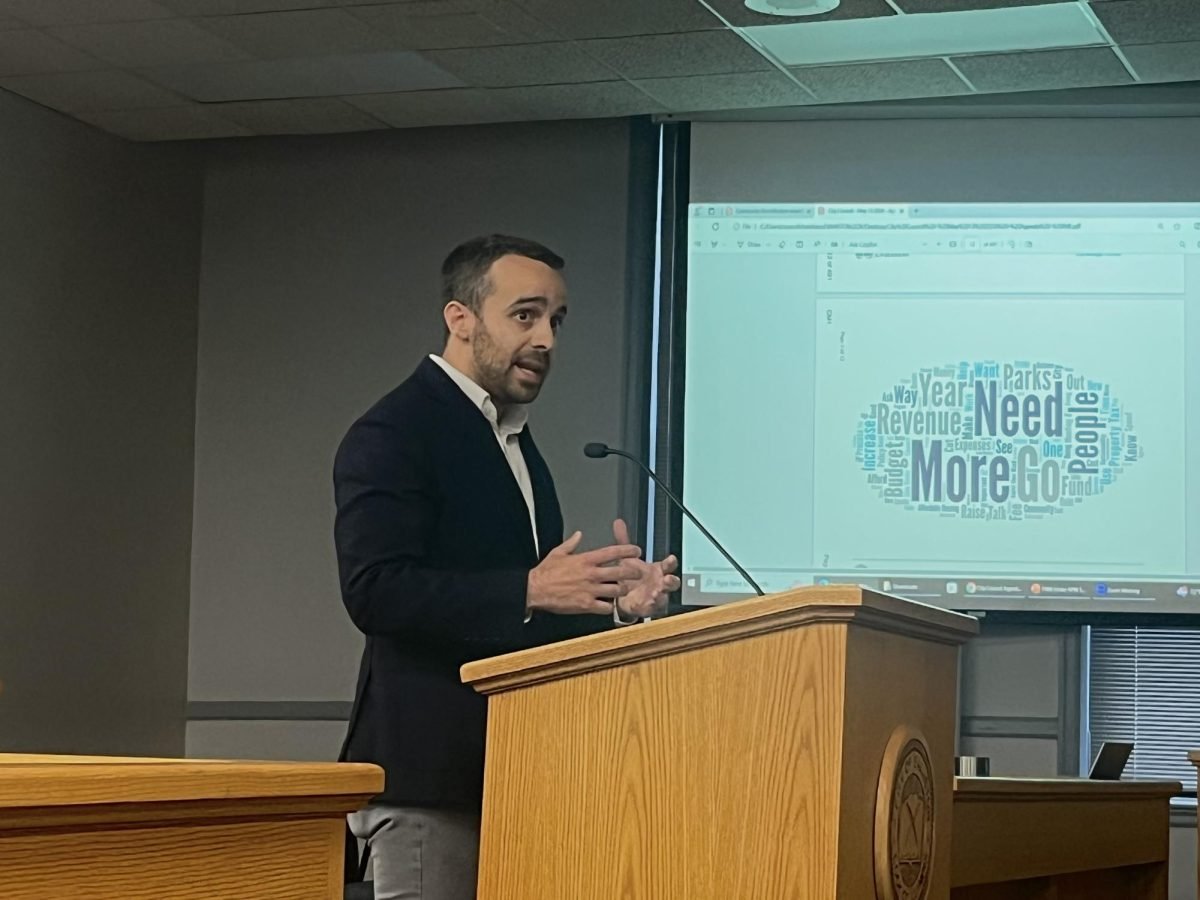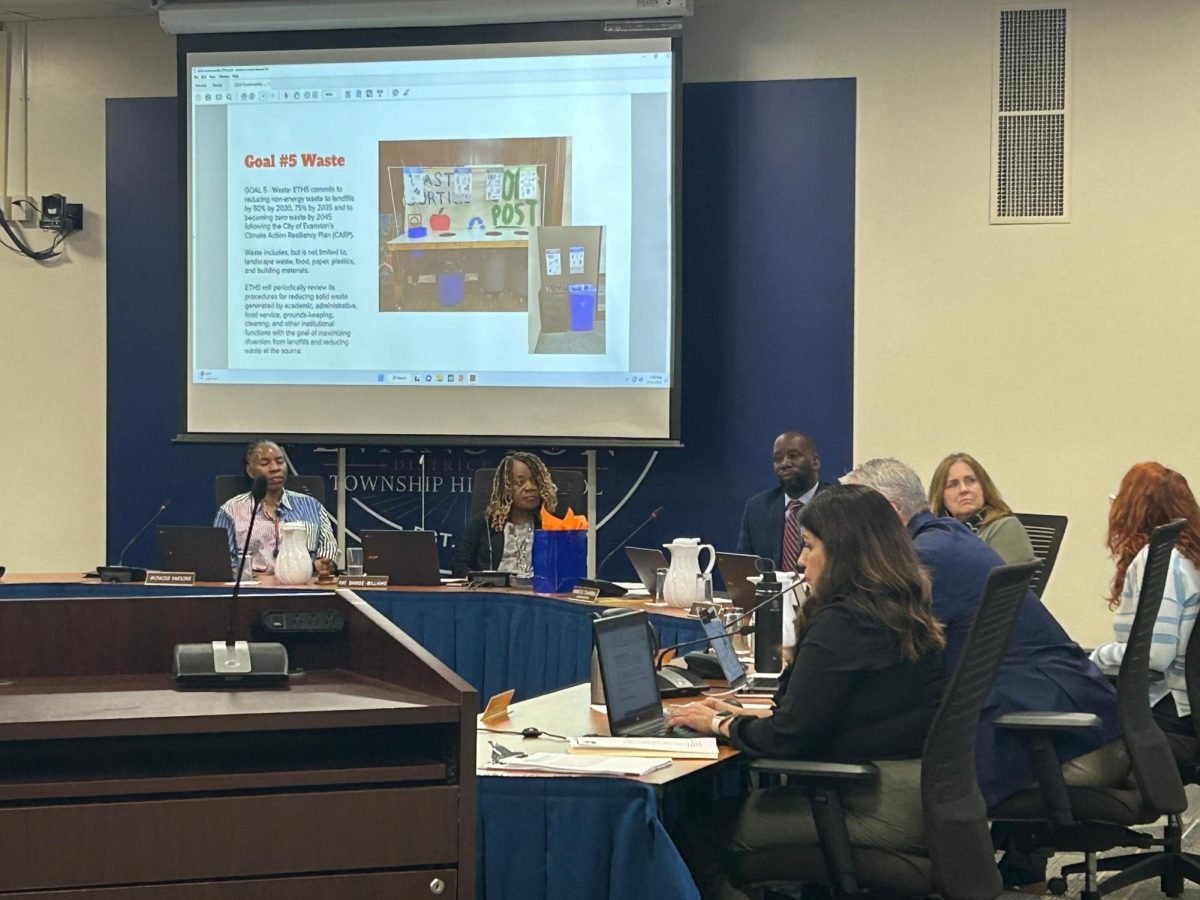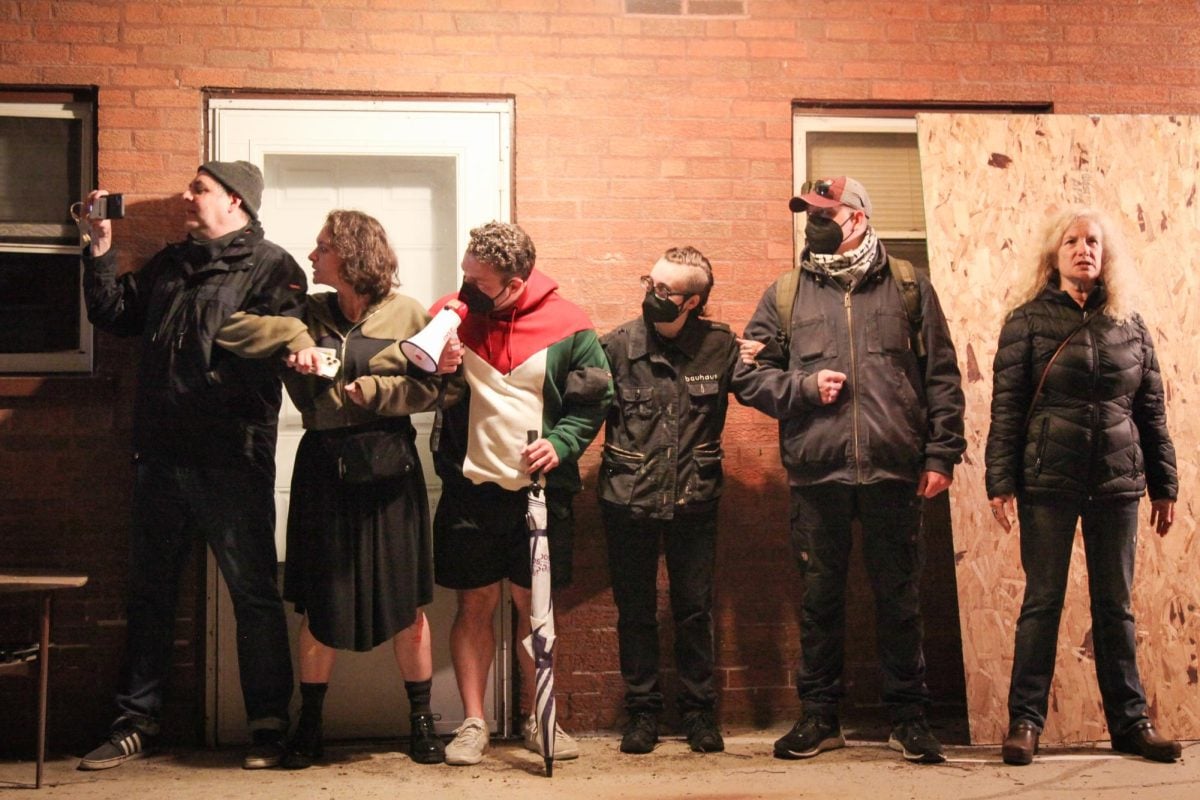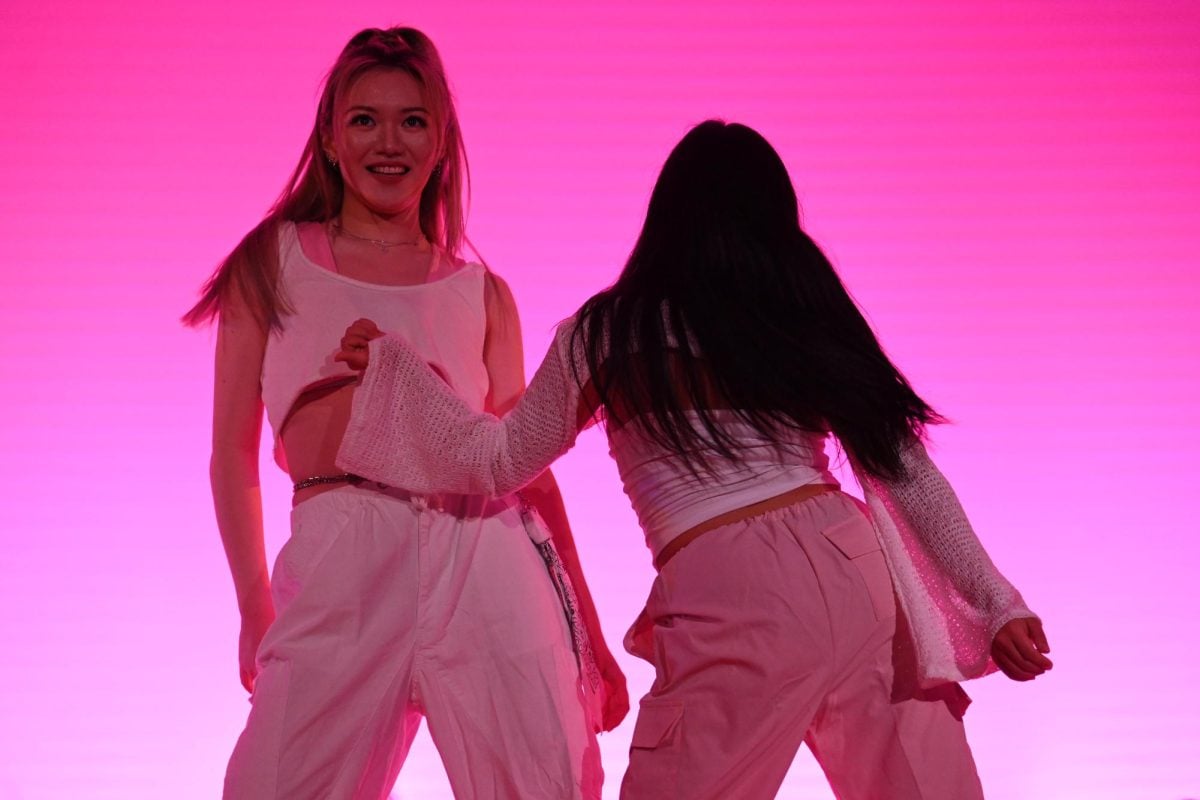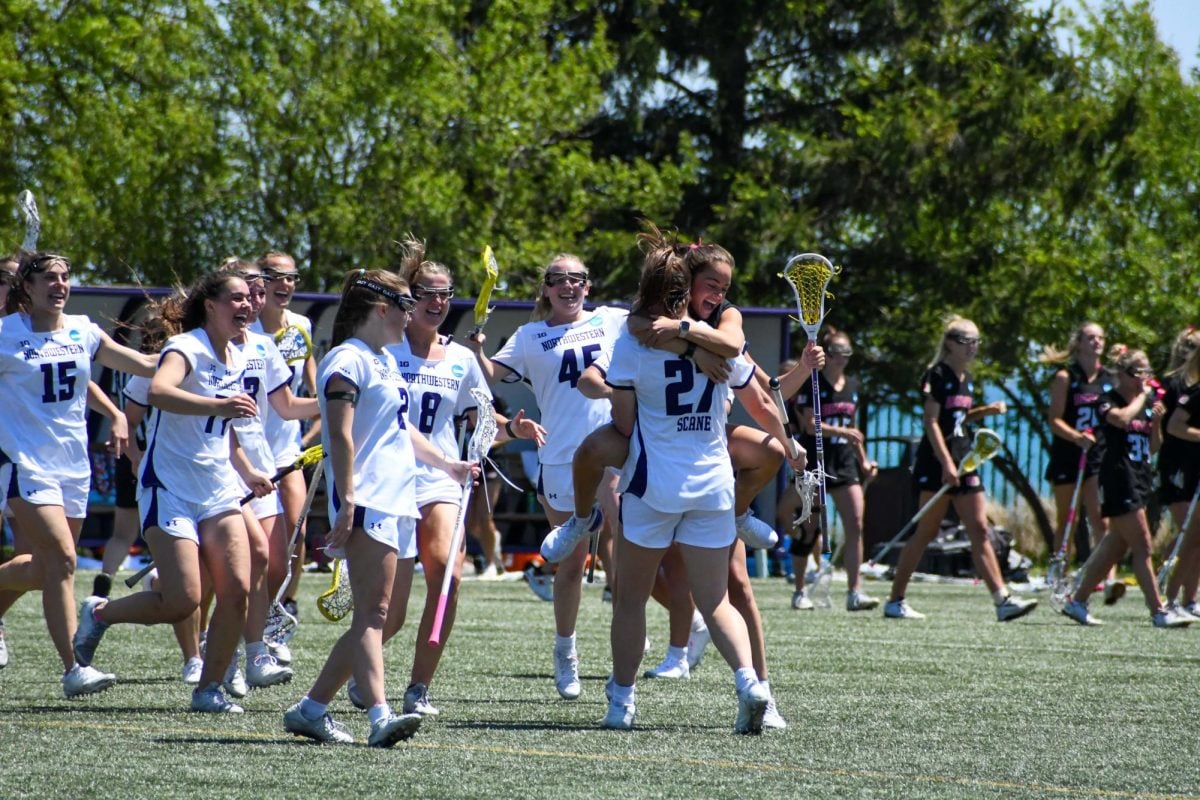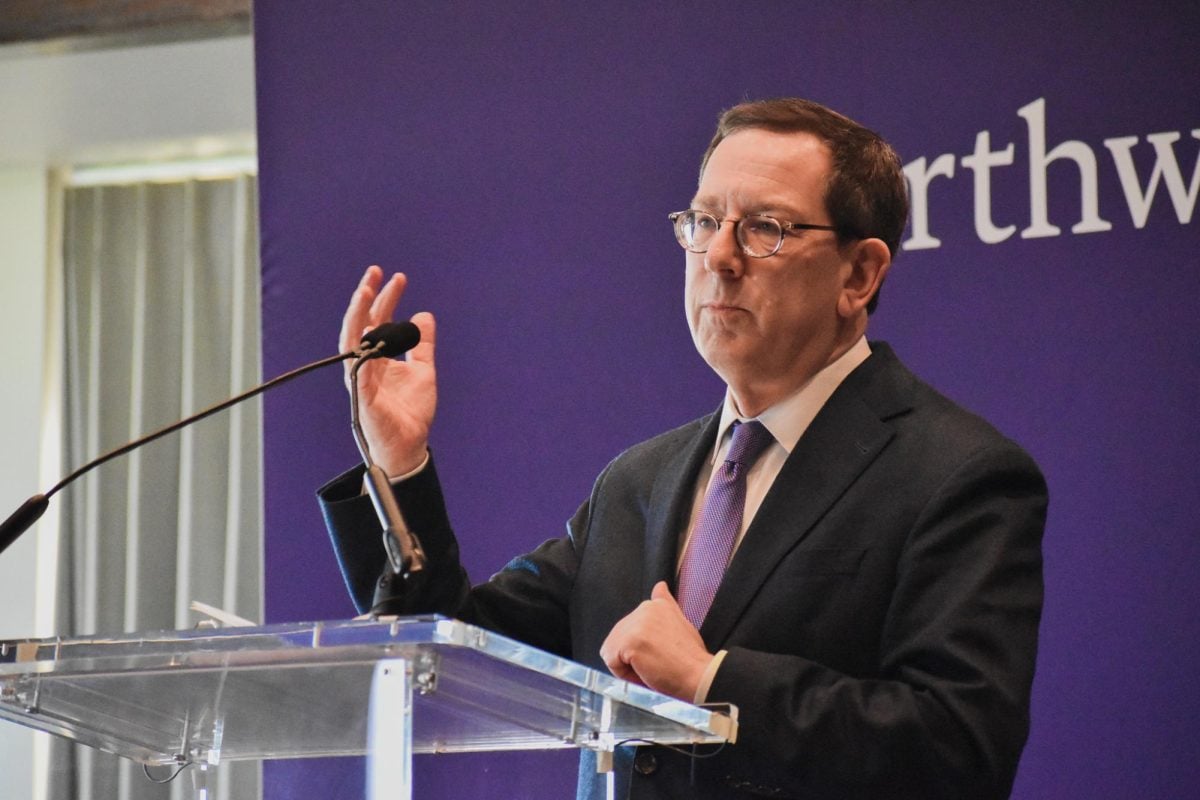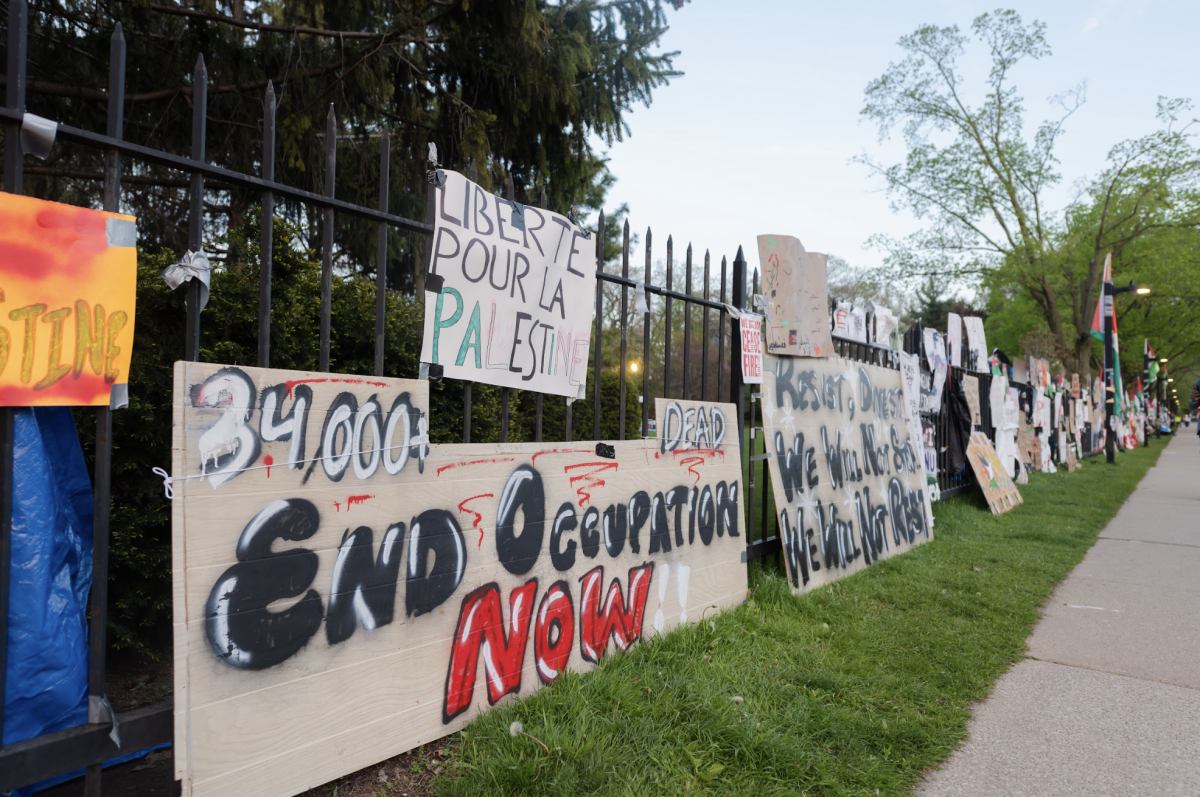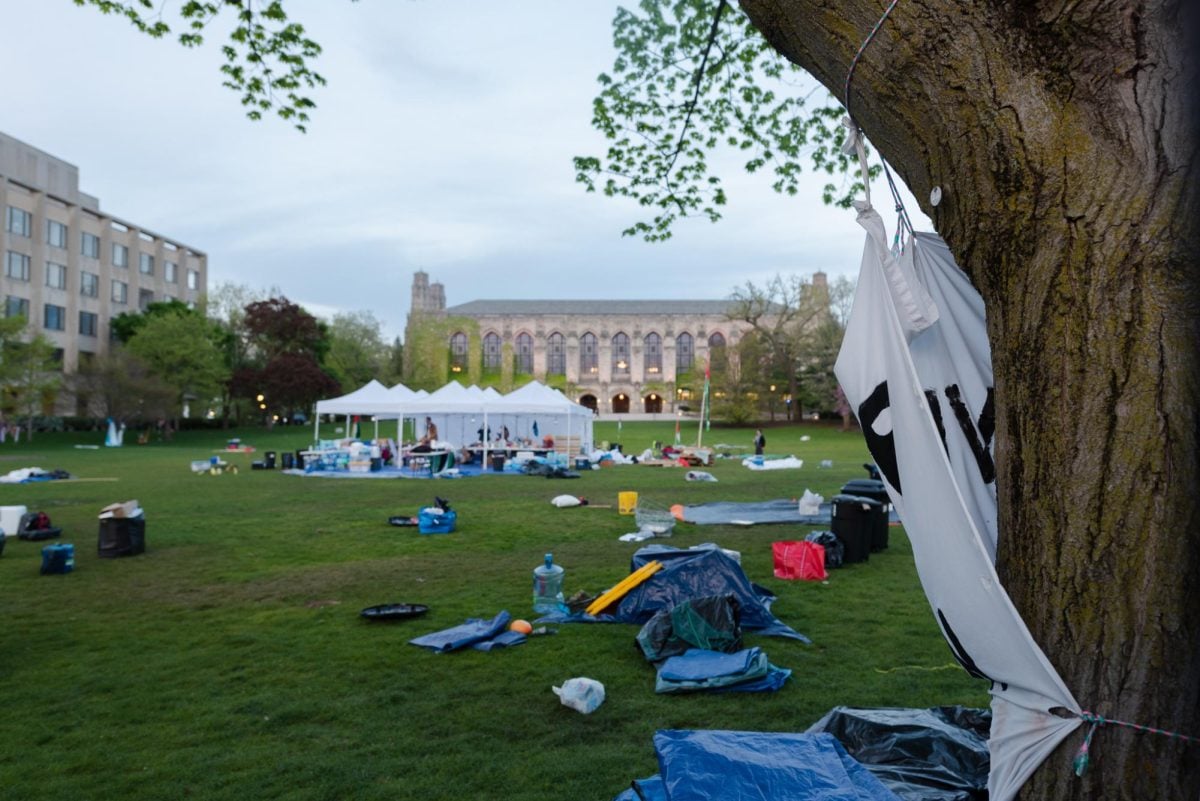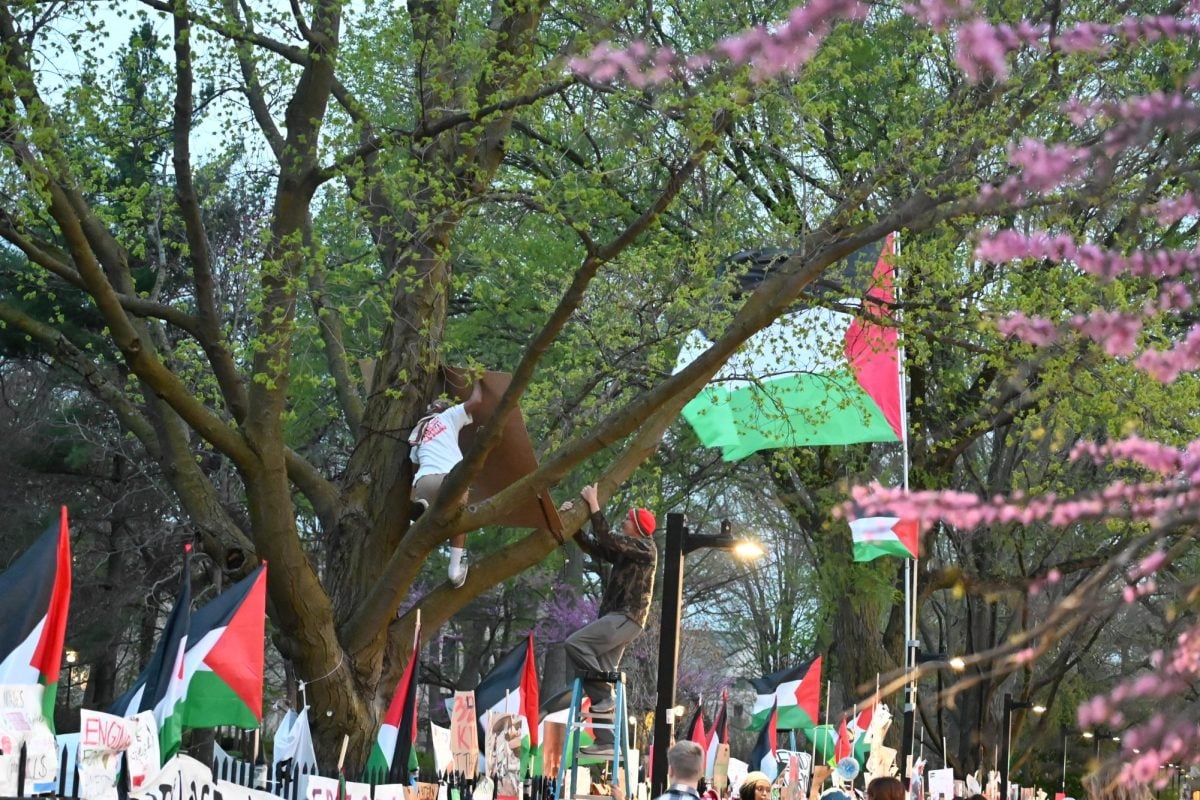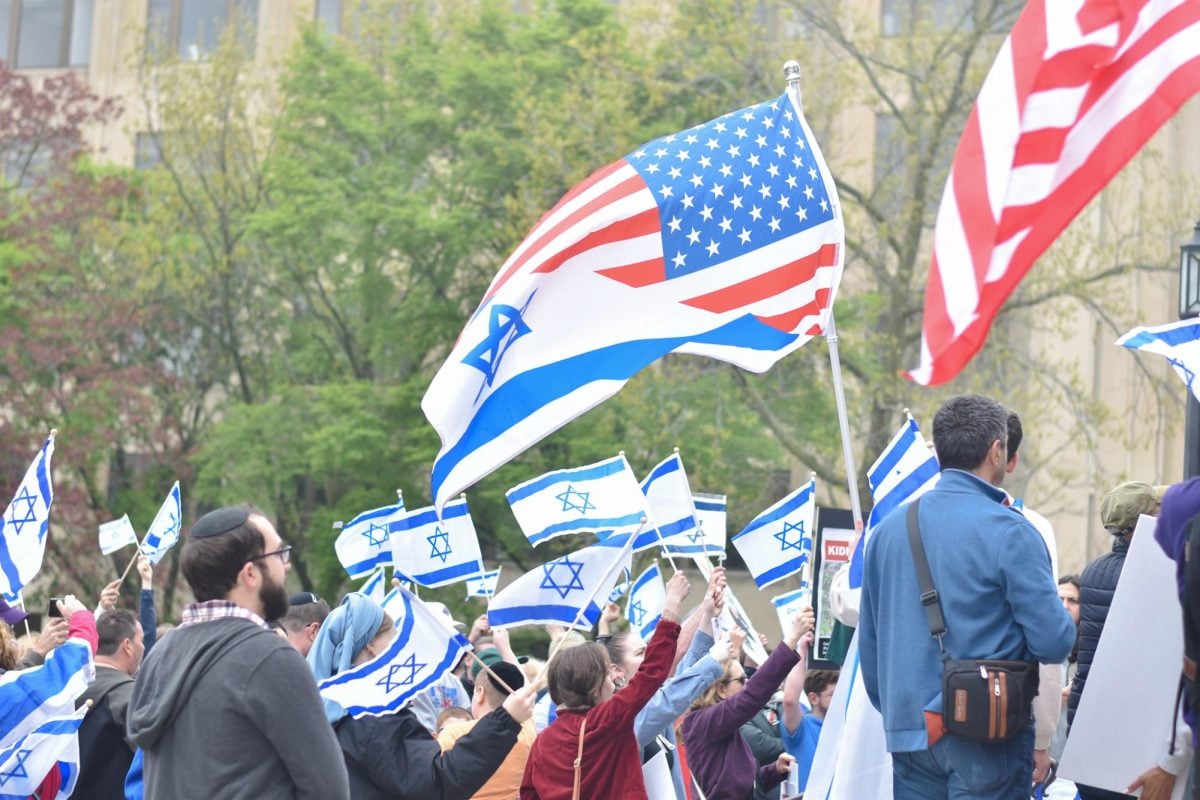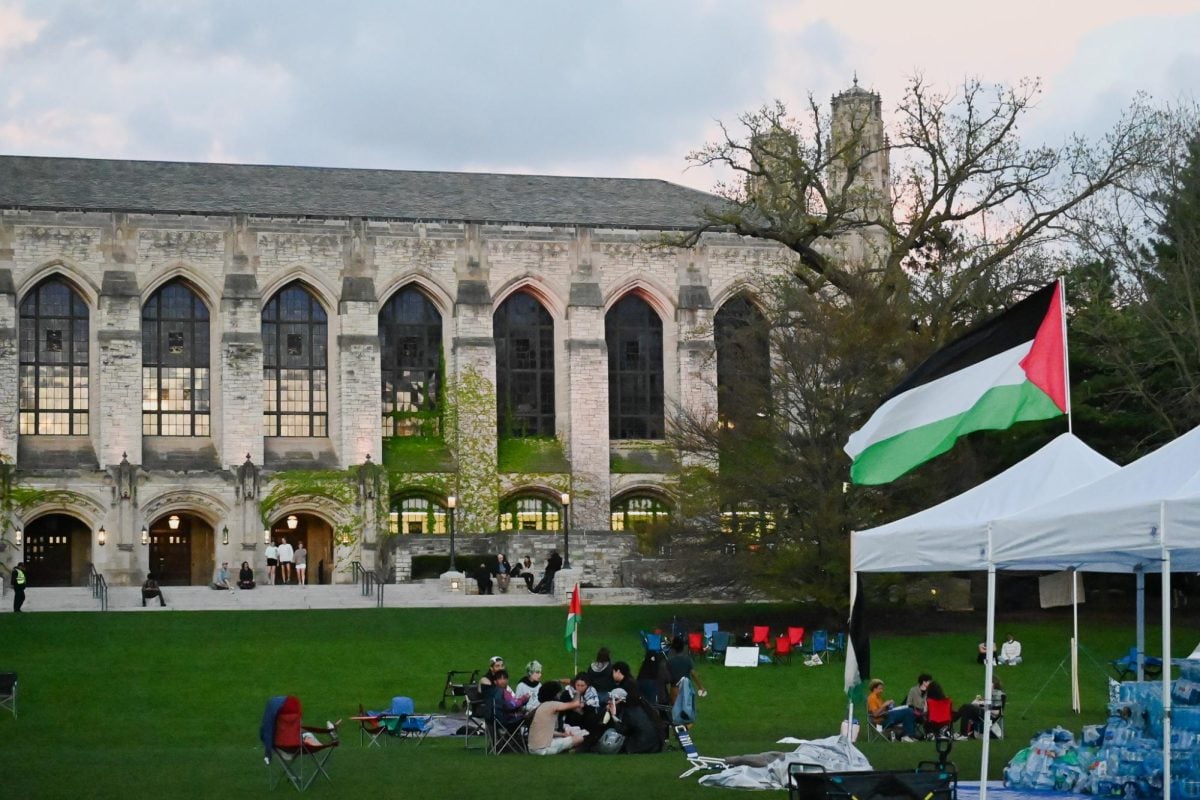As the pro-Palestine encampment on Deering Meadow enters its fifth day, the protest has spurred mixed responses from Northwestern’s more than 2,000 Jewish undergraduate and graduate students.
Some students have critiqued the demonstration and called certain conduct taking place within it antisemitic and anti-Israel. But other Jewish community members have expressed support for the protest.
NU’s chapter of Jewish Voice for Peace has co-led the encampment with NU Students for Justice in Palestine and the University’s chapter of Educators for Justice in Palestine.
Jewish students supportive of the encampment have been highly critical of Israel’s offensive in Gaza. More than 34,000 people in Gaza have been killed during the military campaign, according to Palestinian health officials. Israel’s ground and air offensive follows the militant group Hamas’ Oct. 7 attack on Israel, which killed about 1,200 Israelis, according to Israeli officials.
To Weinberg junior Paz Baum, JVP NU’s treasurer, a core tenet of Judaism is resistance to oppression. She led a seder at the encampment with two other JVP members on Thursday evening for Jewish students observing Passover.
“Passover is a story of a group of enslaved Jewish people in Egypt rising up against their oppressors,” Baum said. “That to me is exactly what we’re doing here at Northwestern. We’re supporting the Palestinian people, an oppressed population, to liberate themselves against what I see as an oppressive government.”
Medill senior and JVP member Maddie Southwell said the encampment has also helped her strengthen her ties to her Jewish faith.
“This is a space where I think everyone — whether they’re Jewish, Muslim, atheist or Christian — has made me feel incredibly welcome and safe sharing my religious beliefs and practicing my faith,” Southwell said.
Growing up, Southwell said she attended a conservative Hebrew temple in her hometown in New York.
Given her conservative religious background, Southwell said she understands how difficult it can be to confront long-standing beliefs about Israel’s connection to Judaism.
However, some Jewish students have expressed concerns with some rhetoric coming out of the demonstration.
“There’s a lot of antisemitism out there, and the scary part about now is it feels like more people are supporting it than ever,” said Medill sophomore Leo Necheles. “As a Jewish person, it just feels very isolating.”
Necheles also said he felt that some of the Jewish ceremonies at the encampment have seemed performative. He said he observed one of the two Passover Seders held at the encampment but found it “inauthentic,” noting that it occurred on the fourth night of Passover when seders typically happen on the first two nights.
Weinberg junior and NU Hillel President Sari Eisen said she believes protesters have crossed a line into being “threatening” to Jewish students.
She said she has heard of at least two instances in which Jewish students were physically or emotionally harmed by demonstrators. One example Eisen gave was a Jewish student journalist’s camera being swatted down by a demonstrator in the encampment.
She also referred to the demonstrators’ calls on the University to divest from Israel as “problematic.” Divestment was one of three demands laid out in the Northwestern People’s Resolution circulated by JVP, EJP and SJP last week, which is now guiding negotiations between encampment organizers and University administrators.
At Wednesday’s Associated Student Government Senate meeting, NU Hillel’s senator was one of two senators to vote against a resolution to sign onto the resolution.
“You’re asking Jewish students to cut their ties to (Israel),” Eisen said. “That feels really targeted and makes for an unsafe environment.”
Eisen said that, while she believes some chants by demonstrators cross a line, others do not. She supports chants like “Free Palestine” that call for a liberated Palestinian state.
Medill sophomore and former Daily staffer Madeleine Stern, president of Wildcats for Israel, said she thinks students on all sides of the conflict should foster dialogue to find common ground.
“I mourn for every life that’s lost. I really want the hostages to come home, and I really want the war to end,” Stern said. “I think that’s how a lot of people are feeling.”
While she supports the protection of students’ civil liberties, Stern said some aspects of the protest are upsetting to her and that demonstrators’ calls for divestment and disaffiliation from Israel are “incredibly hurtful” to many in NU’s Jewish community.
After the encampment began Thursday morning, about 50 members of Hillel and NU Chabad came together on Friday to sing Hebrew songs of peace.
Many Jewish students have called out some posters and signage located in and around the encampment as antisemitic.
This past weekend, some Jewish students shared an Instagram post from the account Jewish on Campus that condemned a sign found near the encampment depicting a Star of David with a red line crossing through it. Another sign depicted University President Michael Schill with devil horns, a historically antisemitic trope that harkens back to medieval-era “blood libel” accusations against Jewish people.
Northwestern Facilities also painted over a spray-painted message reading “Death 2 Israel,” which was displayed on the Jacobs Center just north of the encampment Saturday night. Encampment organizers have said the message was not affiliated with anyone from the protest.
Baum said these displays are not representative of the beliefs of those in the encampment. JVP is working to educate demonstrators about the current and past history of antisemitic tropes, she added.
“We condemn all forms of hate speech,” Baum said. “We are holding our internal community accountable for instances of antisemitism.”
Second-year political science Ph.D. student Molly Schiffer has attended the encampment intermittently since Thursday. When counterprotesters on Sunday held up signs with the faces of hostages held by Hamas, she said she felt some understanding for the counterprotesters and their demands.
Schiffer said supporting the return of hostages and an end to the war and violence in Gaza is “critical” to why she chose to stay at the encampment. She said the multicultural, multireligious nature of the demonstration has enriched her experience as a Jewish student.
“I’ve felt more community as a Jewish student at this encampment than I have in other Jewish designated spaces on campus,” she said.
Jacob Wendler contributed reporting.
Email: [email protected]
Email: [email protected]
X: @sqpowers04
Related Stories:
— Live: Pro-Palestine encampment remains on Deering Meadow
— Divestment demonstrators, counterprotesters stand off on Deering Meadow
— JVP NU releases statement after Deering Meadow counterprotest

